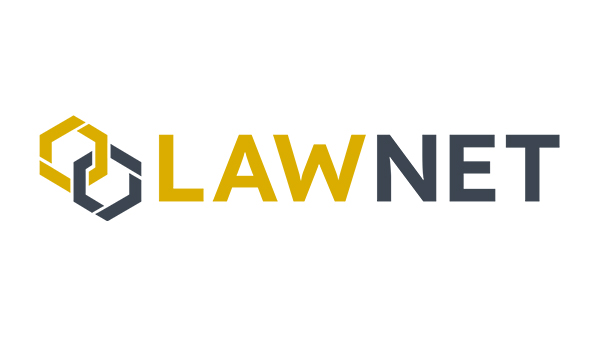Turning a crisis into a masterclass for change
by Chris Marston, chief executive of LawNet
Originally published in Solicitors Journal, March 2021
The future belongs to the fleet of foot
The past few months have posed the toughest leadership test of our generation. We have watched a human tragedy unfold and been forced into crisis management as the doors closed on the economy. Looking back over recent months, what is the most important thing you have learned from leading your law firm through a pandemic? For me, it has been seeing the positive and transformative outcomes that come when business leaders are agile, flexible, and human.
Firefighting was the order of the day throughout the economy when lockdown became inevitable and law firms found themselves acting instinctively to manage the fast-moving situation. In embracing this change, while there have inevitably been some economic casualties, we have seen many firms leap forward, often fulfilling their strategic intentions in double quick time, despite being in crisis management mode.
Responding to an emergency seemed to cause a flow of creativity and innovation, and, like winning in sport, that can become a habit. Responsiveness to changing circumstances marks out those who will succeed, and that calls for flexibility and vision from leaders.
We have been facilitating conversations at senior level in mid-size law firms, with a weekly online discussion forum for our 70-strong member network. Up to 20 members joined each live video conversation, building a ‘Captain’s log’ of law firm leadership and management through the crisis.
Many of the key issues that came out of the first session in early April were – inevitably – operational, such as how to manage staffing and cash flow, or productivity challenges.
But even at that early stage, firms were reporting that the crisis had accelerated change programmes, which might have been planned or even overdue, but had been waiting, or resisted, for one reason or another. Suddenly agile working, paperless projects and video conferencing became ‘how’, instead of ‘not yet’.
There was no sense of firms standing on the side-line, wondering what to do; rather they were grasping the issues and dealing with them. This engendered a real sense of resourcefulness and curiosity, not just in the here and now, but also for the efficiencies and opportunities it could bring firms in the future, with higher productivity already being reported by some firms in those first weeks of lockdown.
But firms were concerned about the potential damage to their carefully built teams with many having staff on furlough, and fears of possible redundancies as the crisis developed. Where was the right balance between reducing hours or furloughing, and how might that balance change over the coming weeks? If people were furloughed so existing business was not fulfilled, would this damage client relationships and future work streams?
And cash flow was clamouring for attention: as clients themselves started to experience cash flow issues, there was concern this might start to affect firms. Cash collection became paramount, while recognising that this could mean there was less to look forward to later in the year. Everywhere we saw firms looking carefully at expenditure and reviewing their commitments.
Recognising financial management as a priority, both in the moment and for the future, we invited expert Andrew Allen to join our discussion sessions. A regular with our firms, and the lead for legal sector services at chartered accountants PKF Francis Clark, he came on board with a session on cashflow and productivity, and another on budget setting.
Andrew unpicked concerns about recovery rates and how to access the sweetie jar of Government grants, loan schemes and VAT deferrals. He encouraged firms to get their financial management in order with pandemic-reflective integrated projections for profit and loss, balance sheet and cash flow. Even though the banks were reducing their information requirements at that time, firms needed to do such forecasting to understand their true financing needs. He urged firms to secure loan finance even if it meant keeping the money to one side until absolutely needed – and to be cautious not to use borrowed money to finance ongoing losses.
The Chancellor’s package of furloughing support, business interruption loans and VAT and income tax deferrals could not be consumed without compunction. The validity of furloughing claims would be checked out by HMRC in future; loans would have to be repaid, and balance sheets, and indeed future viability, could be marred for the long term by excess borrowing.
Importantly, our law firm leaders were encouraged to make sure that their forecasts were revisited regularly and adjusted where necessary, in the light of new information, the latest developments in the pandemic and business performance.
Again, that sense of flexibility was paramount - agile forecasting and financial management would be the benchmark by which firms would successfully navigate the current crisis and be equipped for the future.
By the time late May arrived, all eyes were set on how best to prepare for an uncertain future in the so-called ‘new normal’. Offices became a burning issue, whether managing existing space or reviewing future needs. While clients had adjusted well to conducting matters remotely, some were looking for meetings to take place once again. Discussions turned to how to manage a return to the office and bigger picture issues around the future of work and the part technology might play.
At this stage we invited along another regular on our network circuit. Law firm strategist Andrew Hedley came with a somewhat iconoclastic perspective, rooted in Winston Churchill’s quote: “Never let a good crisis go to waste”. This echoed our own approach throughout this challenging time, orienting discussions towards how to use the pandemic as a masterclass for change.
He emphasised the positive outcomes so far and urged firms to build on the responsive, flexible approach they had proved themselves capable of, and for leaders to adopt a challenge and support philosophy, rather than command and control.
The overwhelming sentiment from the leaders taking part was to agree that they did not want to lose the new behaviours, attitudes and practices that were working so well for them. The challenge was how to avoid a return to old ways of working once people began to return to the office, themselves included.
The lessons from our sessions highlighted three defining considerations for firms looking to achieve and maintain the agility that will be demanded in the ‘new normal’.
Transformation - being open to the opportunities from thinking and doing differently; communication - the bedrock for bringing teams and clients along on the journey; and intention - to demonstrate purpose and engender trust, endeavouring to do the right thing, whether for staff or society.
Transformation
Strong leadership lies at the heart of sustainable change and an embedded culture of agility, but it’s important to distinguish management from leadership. Planning, budgeting, measuring and organising are all essential, but that is management. Leadership is strategic and focused on direction: motivating and aligning teams, looking for opportunities and challenging the prevailing normal. Managers want to do things right; leaders want to do the right thing.
When even the most informed commentators can only guess as to what will happen next, it’s vital to keep things fluid, and it’s hard to do that if you’re focused on getting back to the old way. How to offer a different sort of client experience and employee experience in future is the challenge.
Andrew Hedley’s session encouraged us to think of approaching the situation as ‘business as unusual’ to continually push ourselves into new ways of thinking.
If productivity was good and things were working well, then part of an agile future may involve less in the way of traditional office buildings and daily attendance by staff.
When clients are keen to meet, we need to look for safe ways to do that, but equally we need to listen to those clients who value the distanced, electronic way of working so that virtual consultation remains a first line option.
Outsourcing activities such as post-completion work, SDLT submissions and similar, purely administrative, tasks can bring real benefits. Our firms who had already gone along this route reported that it was one of the most resilient aspects of their business during lockdown.
Similarly, centralising in areas such as dictation, file opening or archiving can bring significant benefits, as evidenced by one of our firms who reported that streamlining through centralised dictation required 30% fewer secretarial hours.
Most importantly, leaders need to keep a clear eye on what is coming, echoing Andrew Allen’s takeaways for strong financial information, clear forecasting, and scenario modelling, with progress continually monitored.
Communication
A clear voice sets the tone of any business and in a crisis even more so, as fiction and rumour thrive at times of uncertainty, especially if communication is poor.
Maintaining and building touch points with staff and clients is essential; partners and department heads need to ensure they are speaking to everyone more regularly than they might usually.
Managing culture and being ‘one firm’ with staff isolated at home has been a challenge for many firms. Divides may have arisen depending on whether people are furloughed or not. Workers may be doing too many hours in difficult circumstances, anxious about losing their job and feeling irritated to see others at home being ‘paid to do nothing’. Those at home may feel dispensable, anxious at being left with nothing to do, and feeling equally challenged. Mental health and wellbeing are paramount and communicating to all staff that leaders recognise the situation and value them as individuals, is essential.
Equally, managing how staff may return to the office demands deft diplomacy skills. Getting people to adhere to new systems and minimise movement with one-way routes and allocated printers is challenging enough, but for those who had been part of a skeleton staff in the office throughout, returners can seem like interlopers who don’t understand the new socially distanced way of working.
Creative ideas to bring the firm together can be vital at this time, and to tackle problems head on. For example, some of our member firms tried a rolling programme of furlough across different staff members, so that the burden is shared. Another firm is building a bonus pot to reward all team members, but with special consideration for those who have gone above and beyond during this time. The idea has been well received, but they were careful to canvass options with staff to be sure it was going to have the intended outcome - motivated, committed teams are not grown in the dark.
With clients, exceptional communication is vital at any time; for now, being focused on how the pandemic may have shaped their needs going forward and asking how you can best deliver against that in future could be the best way to keep their business.
Intention
What is your purpose as an organisation? It’s a big question and may seem more philosophical than practical, but it is vital to consider if you are going to move beyond the profit imperative.
We live in a time of globalisation, but this global pandemic has emphasised the value of thinking locally, and there are opportunities for firms who can demonstrate they are embedded in their community. Creating genuine relationships with clients and demonstrating how you care about your staff, being more ‘human’ and empathetic, are increasingly valued.
A key component of effective leadership is to build trust with all your stakeholders, but words and deeds must be underpinned by integrity, as false statements are quickly unpicked in practice. Reputation counts, and increasingly so. ReviewSolicitors, used by our firms for client reviews, saw an 85% increase in traffic to their website in the first weeks of lockdown.
Taking time to understand individual staff in a holistic way can help redefine purpose. Recognising how their work and home lives are inter-related, and how you might help them be more fulfilled in both spheres, can have a meaning way beyond the purely operational level. The traditional office environment provides a social purpose in bringing people together in one place. Obviously, that has been missing in recent months and some may value being first to come back to the office if they are feeling isolated working alone. For others it may be a more flexible daily home-working routine or only being in the office certain days of the week. Leaders must create within their firms a social purpose as well as a business purpose, and an enhanced employee value proposition, while also fulfilling the objective of keeping the business agile and profitable.
Conclusion:
I have been so impressed by the many and remarkable ways in which our member firms have shaped up in this crisis. One of the most important takeaways has been the recognition that new ideas need not be perfect before implementation. Taking a more flexible approach to change and being prepared to allow things to develop and improve after an initial launch is what’s needed in the new normal. Firms should be prepared to accept failure as the price of future success, to fail fast, improve and try again.
Leadership can be a lonely role, and collaboration has been hugely valuable for our members. They know they can turn to each other to turn to for guidance, validation or a quiet chat. Having access to the support infrastructure and experts that come with the network gives them the confidence to make the right decisions. Our network is a bit like a family, and we know in our own personal lives that dealing with difficulties is easier when family is around to help and support.
Of course, my own team has been tested by the pandemic. We’ve had to rise to the challenge of supporting our members in new ways. We were scanning the horizon while they were busy adapting to an emerging crisis, listening to their views on how we could help, and making that our priority. It’s amazing how quickly these weekly virtual leadership sessions became part of network life, and how rapidly we were able to switch our entire Learning programme online and reshape our customer experience testing to include the changes in client communication and delivery developed during lockdown.
We all have something to learn from this tragedy and this break to normal life has given us an opportunity to make changes that can improve our operating model in the long term. Rather than pressing pause in March, I think many in our sector hit the fast forward button. When change can be so hard to embrace, let’s not lose that impetus.









